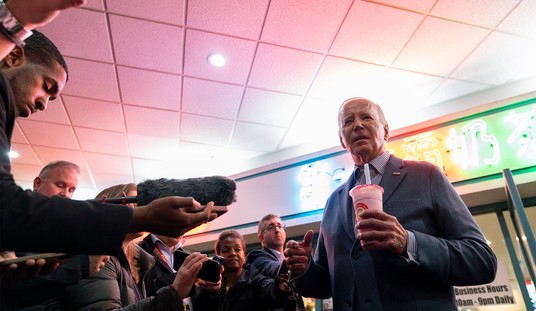It’s hard to believe in the heat of summer, but in just a few weeks, college football players all across the country – especially in the South, where college football is an all-consuming phenomenon – will take to the field for a new season. For one student athlete at the University of Georgia, the dream of playing “between the hedges” at Sanford Stadium remains just out of his grasp.
Kolton Houston has wanted to play football at the University of Georgia since he was a little boy. His father, Shane Houston played for the Bulldogs but saw his career cut short by an injury. Kolton wanted to follow in his father’s footsteps, and in a just world, he would be a starting offensive lineman. However, he cannot play due to NCAA regulations and at one point even faced a lifetime ban from the sport.
Shortly after his arrival in Athens in April 2010, Houston tested positive for an anabolic steroid called norandrolone. The NCAA considers a result greater than 2.5 nanograms per milliliter to be proof of use; Houston had 260 nanograms per milliliter. The math was simple, and he was suspended for a year. Violation, sentence, case closed. Ron Courson, Georgia’s senior associate athletic director, gave Houston the news. “We were very surprised, very shocked,” Courson recently told ESPN’s Outside the Lines.
What wasn’t surprising was Houston’s response. He did what so many caught athletes do, blaming some mysterious tainted supplement, some shake or powder with too much boost. The difference was that Courson, the school’s director of sports medicine since 1995, believed him. He began testing Houston, test after test — “He’s been tested probably more times than anybody in the history of college football,” Georgia coach Mark Richt says — and over time Houston carried less norandrolone but still too much. His body wasn’t a destination for the drug; it was somehow a source.
Houston’s ineligibility stems from a freak medical mishap from his high school days. In high school, Houston underwent shoulder surgery. To speed healing, the doctor prescribed a series of injections. Neither Houston nor his family knew that the injections contained a substance that the NCAA has banned.
The contents of the shots wouldn’t matter a bit had the doctor taken more care to administer them properly. You see, had the doctor injected the shot into Houston’s muscle, the steroid would have worked its way out of his system long before he arrived in Athens. Instead, the doctor missed, and the banned substance entered Houston’s fat, remaining trapped inside his body.
Courson – one of the most respected trainers in all of college athletics – continued to test Houston, keeping meticulous records to prove that his steroid levels were dropping. But Houston’s nightmare continued past his (redshirt) freshman year.
The second positive test came prior to his second year at Georgia, which meant a lifetime NCAA suspension.
“That’s when I think I actually broke down and cried in his office,” Houston told ESPN. “It sort of hit me. I think we’re in over our heads here.”
UGA appealed the lifetime ban, and the NCAA agreed that if Houston’s levels of steroid residue go below the NCAA threshold, he can be eligible.
But Georgia has appealed that too, saying scientific evidence shows that Houston has not re-used, because the levels, although still above the threshold, have gone down. But the NCAA has denied the appeal. Houston remains ineligible until the amount of testosterone in his system drops below a certain level.
UGA Athletic Director Greg McGarity tried to intervene on behalf of one of his most promising players. McGarity wrote a letter to the NCAA asking for an exception in this outlier of a case. The NCAA not only flatly refused, but NCAA President Mark Emmert sent a reply to McGarity that he was “surprised” that McGarity even asked.
In his attempts to rid his body of the dreaded steroid, Houston has gone to desperate measures.
Last summer Houston tried a detox program, where he sat in a sauna that was about 150 degrees, to try to get the steroid residue out of his system. He tried other methods, including an experimental procedure where fatty acids were taken out of his system.
These treatments have served to reduce the level of norandrolone in his system from 260 nanograms per milliliter to four. Yet the NCAA will not budge, standing firm on a threshhold of 2.5 nanograms per milliliter. (For some perspective, a nanogram is one millionth of a gram. Let that sink in – ONE MILLIONTH OF A GRAM.)
Houston’s story has not been secret. Local media have known about it since 2011, but Houston and his family spoke publicly for the first time back in May on ESPN’s Outside The Lines, and he was featured in a June issue of ESPN The Magazine as well. In both cases, the NCAA declined to comment, silently reinforcing that the rigid letter of the law means more than a through examination of this exceptional case.
Fans have taken action as well. Jeremy Barton, of Napa, CA created an online petition which reads:
The NCAA claims in their mission statement that “Our mission is to be an integral part of higher education and to focus on the development of our student-athletes.”
However, it is sometimes the case that the NCAA fails to focus on the student athlete, but rather focuses on the maintenance of a highly bureaucratic set of rules that makes the Postal Service look streamlined. In those times, its implementation of the rules can make Joseph McCarthy look like the great compromiser.
The case of Kolton Houston demonstrates this rigid approach towards governing (not fostering) our student athletes. Houston, improperly injected by a doctor during recovery from a shoulder injury in high school, has been tested for illegal substances upwards of 80+ times over the course of 3 years since enrolling at UGA. The substance in question has decreased by 98.5% since first being tested. The levels are now marginally over the deemed NCAA limit, but despite the UGA Medical team’s appeals to the NCAA, he is denied the opportunity to join his teammates on the field.
The NCAA should review its approach towards the enforcement of their rulebook, and reinstate Houston for the upcoming season. The kid has gone above and beyond the necessary to prove, statistically, that he is not using banned substances. Reinstate Kolton’s eligibility!!!
As of this writing, the petition has 4,996 signatures.
Houston, who turns 22 this week, waits yet another year for his chance to play.
“I think the NCAA should be able to stand up for what’s right, for what they know is right, and make a special case for me,” Houston said.
“He’s served his suspension,” Houston’s mother told ESPN.
Meanwhile, we hear of other student athletes like LSU’s Tyrann “Honey Badger” Mathieu who admitted he “lost count” of how many drug tests he failed while playing for the Tigers and entered the NFL’s drug program this year. Sports media regularly report on repeat offenders who get new chances over and over again.
Kolton Houston has gone out of his way to prove that he isn’t a repeat user of anabolic steroids. The University of Georgia stands behind him, as do thousands of fans in the Bulldog Nation. But are all those factors enough to convince the NCAA to do the right thing? Or is the NCAA too large and bureaucratic of an organization to drop its stubborn rigidity?
Unfortunately, I think I know the answer to those questions, and it’s a shame for Kolton Houston.









Join the conversation as a VIP Member